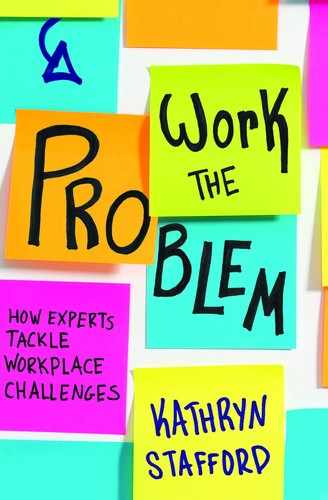TAKE 2
Commentary by Alan De Back
Alan De Back is a career counselor and learning consultant with more than 20 years of experience. He has served as director of global learning for an Internet consulting firm and manager of leadership development for a major aerospace corporation.
Diana’s issues are not uncommon in young, rapidly growing technology organizations. Because of the rapid growth, the managerial and support mechanisms are often not in place to support either managers or employees. Thus, the major problems in this scenario are both individual and organizational.
First, Diana is relatively inexperienced as a manager. Although her intentions are great, she has not been given the knowledge or tools to fill her role effectively. Diana also appears to either be receiving no support from her management, or she has not asked for it. If her manager does have the resources to assist her, she should be reaching out and asking for help. Without training in managerial skills and strategies or support from leadership, she will continue to struggle as a manager.
Diana also has gone through an overwhelming change in corporate culture. Her old organization and her new one have completely opposite cultures. Although she articulated that she wanted a more collaborative atmosphere and a more open work environment, she seems to be having difficulty adjusting to an extreme example of what she thought she wanted.
I would recommend that Diana work with a coach to assess whether she is in an environment where she can succeed. She was working with a coach when she made the decision to move to nFold, and she should do so again. If she determines that the nFold culture is right for her, what steps can she take to better function in that environment? If not, what does she need to do to move to an organization with a culture and environment that are a better fit for her?
If Diana stays, she needs training in more effective managerial strategies. Although her team sounds very bright and motivated, they appear to be forging ahead with little direction. While continuing to support the open and collaborative environment, Diana needs the tools to rein in the team a bit and provide the direction and guidance they are lacking.
These strategies would also help Diana rethink her overall approach to Nell’s performance. Because Diana identifies so strongly with Nell, she has ignored Nell’s issues with technical proficiency. Her focus on soft skills like time management is problematic if Nell actually does lack the technical skills she needs to succeed. Diana also jumped way too quickly to offer to be Nell’s mentor. At this point, she is not the right person to fill that role, and it would necessitate changes in organizational structure. In addition, Diana’s own issues make her a less-than-ideal mentor candidate.
I would recommend that rather than putting Nell on a performance plan, Diana work with her on an individual development plan (IDP) focused on her technical proficiency. Nell appears to have a positive attitude, and an IDP would provide much more incentive to develop her skills than a performance plan.
As for nFold, it appears to be struggling with managerial issues, as is the case with many young organizations. Diana is probably typical of many managers, who are hired or promoted primarily because of their technical expertise. There is no evidence of either training or adequate managerial support for someone like her.
Because the environment at nFold is so open and dynamic, there also seem to be issues with teams working together effectively. Again, there is no evidence of training or support in teamwork or team dynamics. nFold should probably take a hard look at their organizational structure and how their organization is functioning. They seem to be focusing primarily on growth, and that growth may be out of control.
I would further recommend that nFold consider bringing in an outside organization development (OD) consultant to analyze their overall situation. With so much focus on growth, management appears to have paid little attention to how the organization is functioning. They may need a neutral outside expert to advise them on the path forward. As for resources, depending on the recommendations from the OD consultant, a team-building tool or personality assessment, such as DiSC, could be useful for getting teams and their supervisors to work together more effectively. A communications self-assessment such as What’s My Communication Style? (HRDQ 2008) could also be useful in helping team members enhance their strengths and address challenges in communicating with one another.
